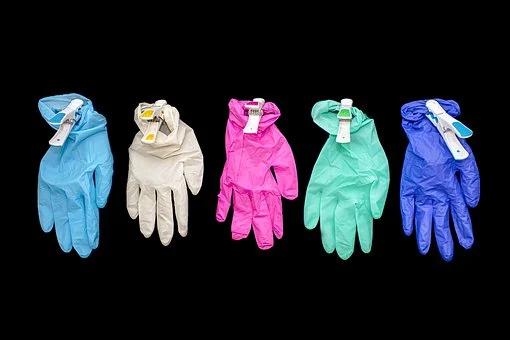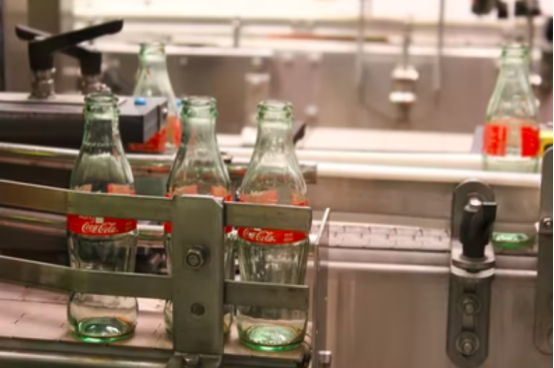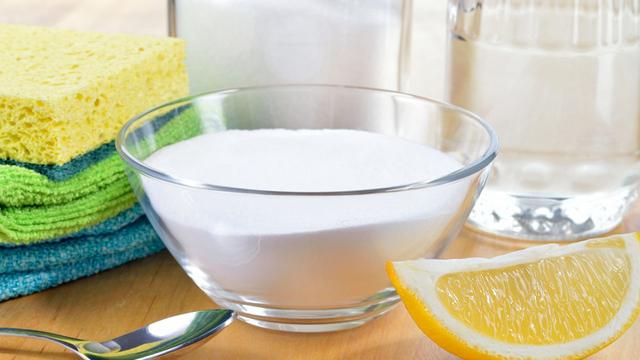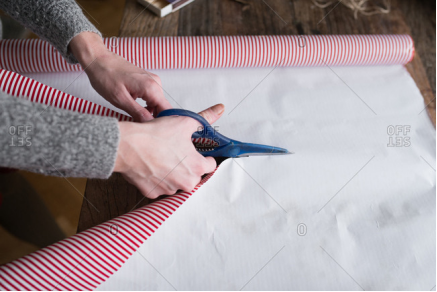SCDHEC Recycling Hard-to-Manage Items
Recycling is simple and convenient in South Carolina.
Each of the state's 46 counties has a residential recycling program. Overall, there are 60-plus curbside programs, nearly 600 drop-off centers and more than 900 collection sites for do-it-yourself (DIY) oil changers.
Almost all recycling programs accept aluminum and steel cans, plastic bottles, paper and cardboard. The items listed below also can be recycled, but residents must check with their county recycling coordinator to find out if the material is accepted or what other options are available.
Visit RecycleHereSC for more information on recycling in your area.
Antifreeze
QUESTION: How do I properly dispose of or recycle antifreeze?
ANSWER: Some county programs accept antifreeze. To find out if it is accepted in your community, visit RecycleHereSC. In addition, check to see if your community offers single-day collection events for household hazardous waste. Another option is to ask your car dealer or mechanic to see if they will accept your antifreeze for proper disposal or recycling.
Batteries
QUESTION: Where can I recycle my lead-acid (e.g., car, truck, motorcycle) battery?
ANSWER: Lead-acid batteries must be recycled in South Carolina. Every county accepts lead-acid batteries. To find the location nearest you, visit RecyleHereSC. In addition, most auto parts retailers accept batteries.
NOTE: You also can recycle your old lead-acid battery at the retail location where you bought your new one. There is a $7 advance recycling fee on each new battery purchased. If you return your old battery when buying a new battery, you will receive a $5 credit and be charged only $2.
QUESTION: Where can I recycle rechargeable batteries?
ANSWER: Rechargeable batteries can be recycled at major retailers (e.g, Lowe's, Best Buy, The Home Depot) that participate in the Call2Recycle program. The program, free to residents, accepts all dry cell rechargeable batteries weighing up to 11 pounds including Nickel Cadmium (Ni-Cd), Nickel-Metal Hydride (Ni-MH), Nickle Zinc (Ni-ZN) and Lithium Ion (Li-Ion) batteries as well as small lead-acid batteries. To find a recycling location near you, visit Call2Recycle.
Rechargeable batteries also can be recycled at Batteries Plus Bulb stores. Call ahead to confirm what services are available. To find a store near you, visit Batteries Plus.
QUESTION: Where can I properly dispose of or recycle my single-use batteries?
ANSWER: Alkaline batteries can be disposed of in your household garbage.
Lithium batteries - commonly used in cameras, watches and remote controls - and button batteries - commonly found in watches, hearing aids, keyless entry remotes and medical devices - should not be disposed of if possible. These non-rechargeable batteries should be properly managed as household hazardous waste. To find out what opportunities are available in your community, visit RecycleHereSC.
Compact Fluorescent Light Bulbs (CFLs)
QUESTION: Where can I recycle my CFLs?
ANSWER: Some county programs accept CFLs through household hazardous waste programs or single-day collection events. To find out if CFLs are accepted in your community, visit RecycleHereSC.
Residents also can recycle CFL's at Lowe's, The Home Depot and Batteries Plus Bulbs.
Lowe's may offer recycling centers at the store entrance that accept CFL's as well as rechargeable batteries, cell phones and plastic bags.
The Home Depot may also offer recycling for CFL's and rechargeable batteries.
Batteries Plus Bulbs may provide recycling for CFL's and other types of bulbs and lighting products as well as rechargeable batteries.
It is recommended to check with any of the above mentioned stores before going to ensure these recycling services are available.
If you cannot find a recycling option, residents may place CFLs in their household garbage. The U.S. Environmental Protection Agency (EPA) recommends that the bulb(s) be placed and sealed in a plastic bag before disposing of in the trash. The EPA provides more information on CFLs, proper disposal and steps to take when a CFL breaks here.
Composting
QUESTION: What can I compost at home? How do I do it?
ANSWER: Composting is simple. All you need to start is a little time, a small space and a basic understanding of the composting process. To learn how to begin composting in your backyard, visit Composting at Home.
Electronics
QUESTION: Where can I recycle unwanted household electronics?ANSWER: Residents are required by law to recycle computers, computer monitors, printers and televisions. Here are the primary recycling opportunities available.
If recycling unwanted electronics, delete all personal information.
Learn more about electronics recycling in South Carolina.
Farm Oil
QUESTION: Where can farmers recycle oil?
ANSWER: Many county programs accept used motor oil from farms (25 gallons or less per month) in specially designated collection tanks. To find a collection site near you, visit RecycleHereSC.
Gasoline
QUESTION: Where can I recycle gasoline?
ANSWER: Some county programs accept gasoline in specially designated oil/gasoline mixture collection tanks. To find a collection site near you, visit RecycleHereSC.
Glass
QUESTION: Where can I recycle glass?
ANSWER: Many programs have dropped curbside collection of glass, but still offer recycling opportunities at drop-off centers. To find out if glass is accepted in your community, visit RecycleHereSC. It is not necessary to remove any labels. Dispose of the lid. Avoid breaking the glass. Window glass, mirrors, Pyrex, light bulbs, ceramics and drinking glasses cannot be recycled.
Household Hazardous Waste
QUESTION: How can I properly manage household hazardous waste (HHW)?
ANSWER: There are several options to safely managing these unwanted household products (e.g., cleaners, lawn and garden chemicals, pool chemicals, pesticides, stains, varnishes).
Large Appliances
QUESTION: Where do I recycle my large household appliances (e.g., refrigerators, stoves, washers and dryers)?
ANSWER: Large appliances must be recycled in South Carolina. Most counties accept these items at recycling drop-off centers or other designated locations, in curbside programs, or single-day collection events. To find out recycling opportunities in your community, visit RecycleHereSC. When buying a new appliance, ask if the retailer will accept the old appliance for recycling.
NOTE: There is a $2 fee on each appliance you purchase. The fee provides grant funding to local governments for recycling programs as well as the state's solid waste management program. South Carolina has no other fee associated with the sale of appliances. Retailers my charge additional environmental fees as a matter of company policy.
Mercury Thermostats
QUESTION: here can I recycle my mercury thermostat?
ANSWER:The Thermostat Recycling Corporation offers a nationwide program to collect mercury thermostats. To find the location nearest you, visit www.thermostat-recycle.org/zipsearch.
Motor Oil
QUESTION: Where can do-it-yourself (DIY) oil changers recycle used motor oil?
ANSWER: DIYers in South Carolina are required by law to recycle their used motor oil. There are more than 900 used motor oil collection sites across South Carolina for DIYers and farmers including locations in each of the state's 46 counties. The majority of the sites are provided by local governments but participating retailers such as Advance Auto Parts, Auto Zone, NAPA Auto Parts, O'Reilly Auto Parts, Pep Boys, Walmart and Jiffy Lube may also accept used motor oil from DIYers at no charge.
To find a collection site near you, visit RecycleHereSC. To find a retail location near you that accepts used motor oil, visit www.irecycleoil.com. Not all retail locations participate in this program. Call ahead to ask if the service is available
NOTE: There is a two cents per quart advance recycling fee on oil. The fee - which is part of South Carolina's solid waste legislation - provides grant funding to local governments for the recycling of used motor oil, oil filters and oil bottles as well as the state's solid waste management program. South Carolina has no other fee associated with the sale of oil. Retailers may charge additional fees as a matter of company policy.
Oil Filters and Bottles
QUESTION: Where can I recycle oil filters and bottles?
ANSWER: Most county and municipal recycling programs accept used motor oil filters and bottles. To find a collection site near you, visit RecycleHereSC.
Oil/Gasoline Mixtures
QUESTION: Where can I recycle oil/gasoline mixtures?
ANSWER: Most county programs accept oil/gasoline mixtures in specially designated collection tanks. To find a collection site near you, visit RecycleHereSC.
Packing 'Peanuts'
QUESTION: What can I do with those packaging peanuts that come with things that are shipped to me?
ANSWER: Don't throw them away. Save them and use them when you need to mail a package. If you don't want to do that, some stores that mail packages will accept the peanuts and reuse them.
Paint
QUESTION: How do I properly dispose of or recycle latex paint?
ANSWER: Improperly disposed of paint can damage septic fields, overload waste water treatment plants and create environmental hazards on the ground. Residents have four options to properly manage unwanted latex paint.
QUESTION: How should I properly dispose of or recycle oil-based paint?
ANSWER: Most experts recommend that unwanted oil-based paint be managed through a household hazardous waste program or event. Visit RecycleHereSC to see what services are available in your community.
Pizza Boxes
QUESTION: Can pizza boxes be recycled?
ANSWER: If your pizza box is not heavily contaminated with grease (soaked through the cardboard), it can be recycled. If it is contaminated, remove that part and recycle the rest of the box.
Plastic Bags
QUESTION: Where can I recycle plastic bags?
ANSWER: Food banks are always in need of plastic bags – check with your local non-profit first. Many grocery stores accept plastic bags for recycling as well. For a list of stores in your area that accept them, visit plasticbagrecycling.org.
Telephone Books
QUESTION: Where can I recycle my telephone book?
ANSWER: Most local government recycling programs accept telephone books.
QUESTION: Can I stop having telephone books delivered to my home?
ANSWER:Yes. To opt out, visit The National Yellow Pages Consumer Choice and Opt Out Site.
Tires
QUESTION: Where do I recycle my unwanted tires?
ANSWER: Tires must be recycled in South Carolina. All counties accept unwanted tires from residents - often limited to a minimal number (e.g., five per day, 10 per month) at designated locations or single-day collection events. To find out recycling opportunities in your community, visit RecycleHereSC. Before buying tires, ask if the retailer will accept the old tires for recycling. Before taking tires to a collection center, check with the county recycling coordinator to see if there are any limits on the number of tires that can be dropped off at one time.
NOTE: There is a $2 fee on each tire you purchase with a U.S. Department of Transportation number. The fee provides grant funding to local governments to manage unwanted tires. South Carolina has no other fee associated with the sale of tires. Retailers my charge additional environmental fees as a matter of company policy.
Unwanted Mail
QUESTION: Can I recycle unwanted mail?
ANSWER: Most unwanted mail can be recycled. This includes newspaper inserts, glossy postcards, catalogs and other advertisements.
Credit-card applications and other unwanted mail containing any personal information should be shredded. Most local government programs do not accept shredded paper - so you will have to dispose of it. Some programs, however, offer single-day shredding events where it can be recycled. To learn more about what is offered in your community, visit RecycleHereSC.
QUESTION: How do I stop unwanted mail?
ANSWER: Stopping unwanted mail not only reduces waste but also helps prevent identity theft. The Unwanted Mail & Identity Theft postcard provides contact information on how to stop unwanted mail and tips on to how safely recycle mail.







